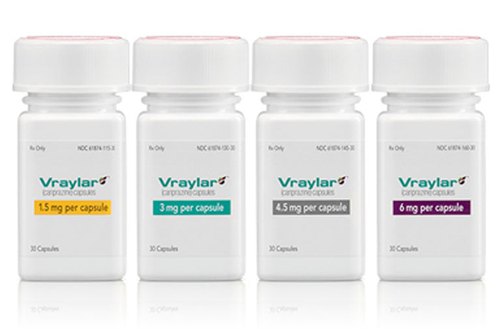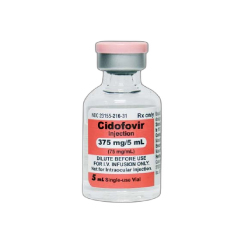Description
Uses of medication: Cariprazine specifically is an atypical antipsychotic prescribed for the treatment of:
- Schizophrenia
- Bipolar Mania
- Bipolar Depression
Dosage: The recommended dose of vraylar should be taken either with or without food, as exactly your healthcare practitioner tells to take it. It is not recommended to change the vraylar dose or interrupt taking it without first discussing it with your healthcare practitioner.
Treatment Reactions: The most commonly reported cariprazine side effects may include: Schizophrenia: Akathisia and Extrapyramidal Symptoms. Bipolar Mania: Dyspepsia, Akathisia, Vomiting, Somnolence, Restlessness and Extrapyramidal Symptoms. Bipolar Depression: Restlessness, Akathisia, Nausea, and Extrapyramidal Symptoms.
Warnings and Precautions:
- Avoid taking cariprazine in case you are allergic to any of its ingredients. Seek immediate medical assistance in case you’re having an allergic reaction (eg, hives, rash, itching, swelling of the tongue, lip, face, or throat).
- Patients should be monitored for the adverse reactions and treatment response for the several weeks after initiating vraylar 6 mg and following each dosage change.
- Cariprazine and other antipsychotic agents need to be used cautiously in patients at the risk for aspiration.
- Use of vraylar 1.5mg/3mg/4.5mg/6mg should be avoided in patients with the severe renal impairment.
- Patients should be monitored for the heart rate as well as blood pressure and patients with known cardiovascular or cerebrovascular disease, and risk of dehydration or syncope.
- Patients with cariprazine drug should be monitored for hyperglycemia or diabetes mellitus, dyslipidemia and weight gain.
- Complete blood counts (CBC) should be performed in patients with pre-existing low WBC counts or history of leukopenia/neutropenia.
- Avoid becoming excess hot or dehydrated while taking treatment with cariprazine.





